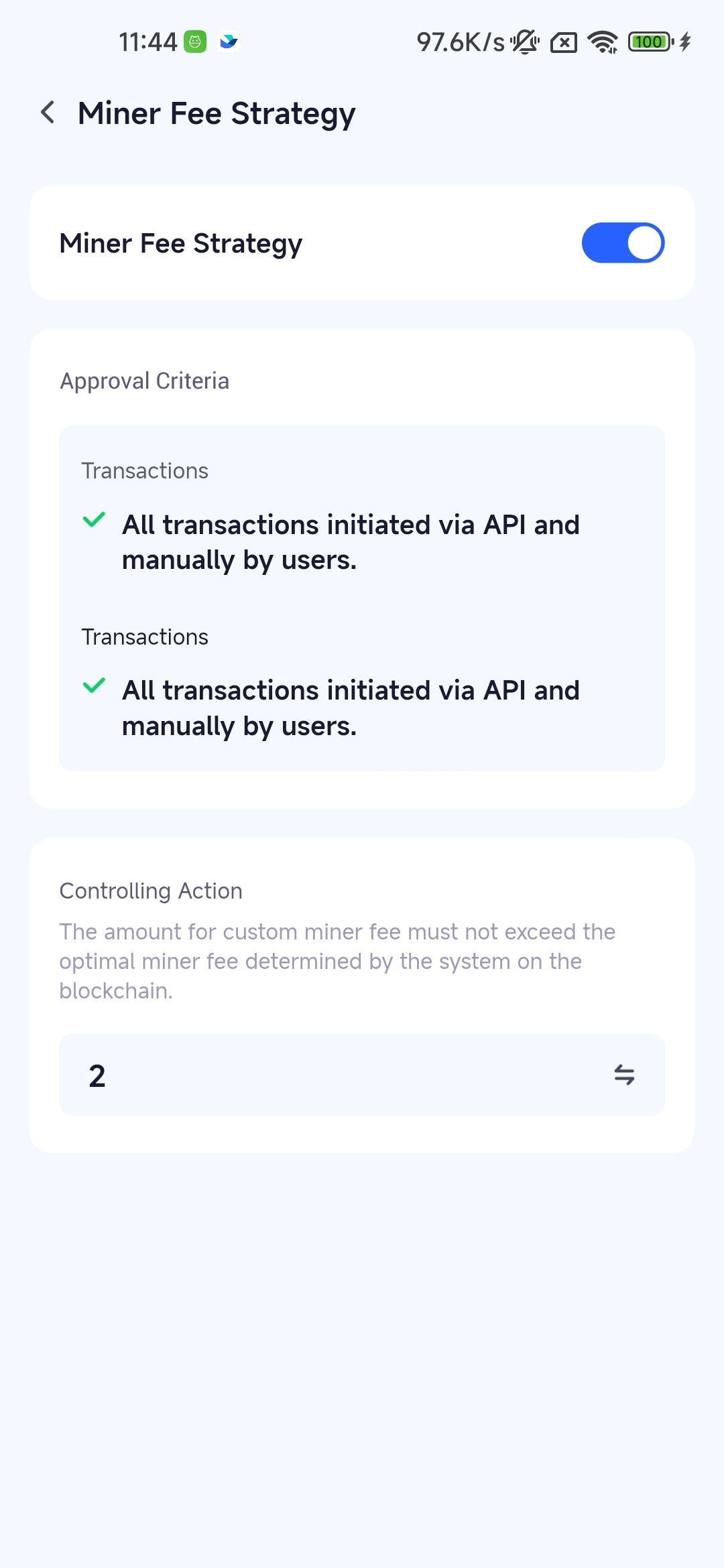Miner (Gas) Fee Strategy
Function Introduction
ChainUp Custody’s strategy engine allows workspace owner to enable and configure miner fee policies to prevent private key holders from maliciously or mistakenly setting excessively high custom miner fees, which could lead to financial losses.
Miner fee strategy apply to all types of transactions. During the approval and signing stages, if an approver needs to customize the miner fee, the system will check whether the fee amount exceeds the preset limit according to the strategy, ensuring that financial losses do not occur due to excessively high fees entered by users.
-
If you have enabled the miner fee strategy, all asset transactions, including those initiated via API, will be subject to the miner fee strategy whenever manual signing is required.
-
If a transaction requires a Co-Signer signature, the miner fee value will be automatically provided by the Custody system with the best on-chain solution, avoiding the restrictions of the miner fee policy and preventing the transaction from being blocked.
Management Scenarios
Management of transaction types: Covers all transactions, including manual withdrawals (transfers) and API withdrawals.
Management of transaction range: Includes all asset transactions, whether they are cryptocurrencies or NFTs.
Operation Procedure
Only the workspace owner can operate this.
Login and Open Miner Fee Policy
Log in to the Custody APP’s MPC system, navigate to the “Security” - “Strategy Engine” function.

Choose the Workspace for the Policy
In the strategy engine, choose the MPC workspace you want to apply the miner fee policy to.

Add and Configure Miner Fee Policy
In this step, you can define the limit for controlling custom miner fees to prevent excessively high transaction miner fees due to errors or internal malicious actions, thereby avoiding asset loss.

Ensure to set the miner fee limit appropriately to balance between transaction speed and cost efficiency.
Review the miner fee policy regularly to adapt to the changing network conditions.
Was this page helpful?